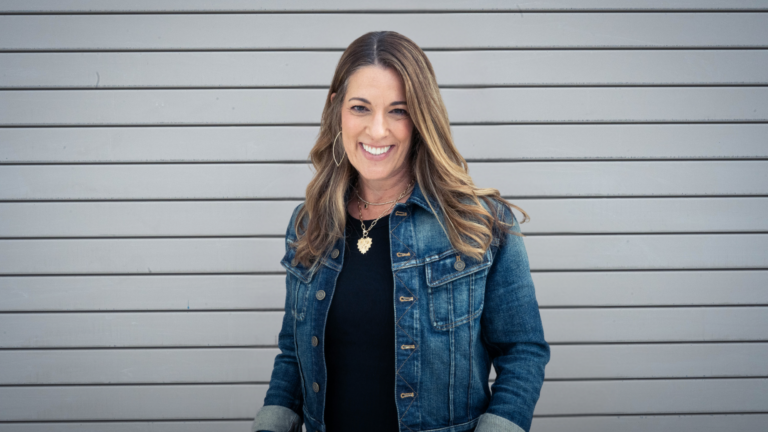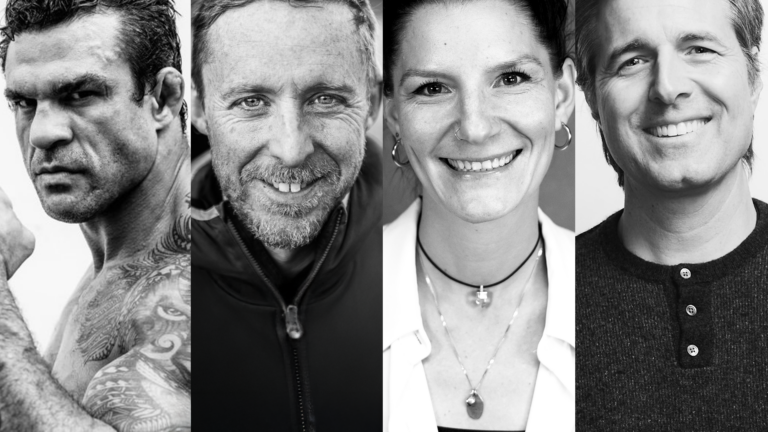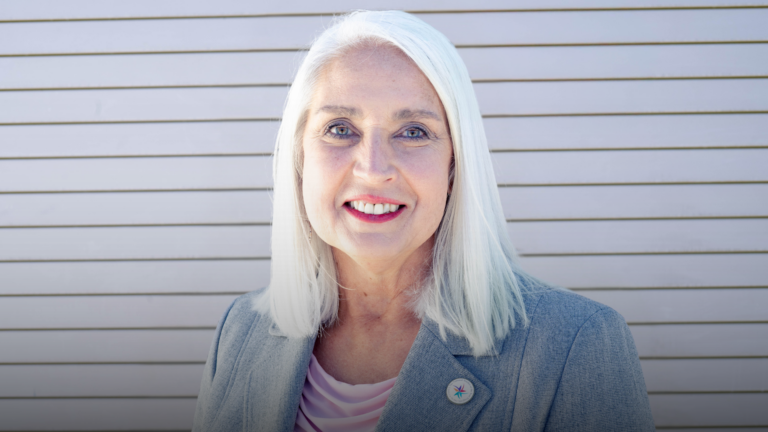Why do some people excel in the toughest of conditions while others fall short?
This age-old question finds its answer in the lives and experiences of today’s guests: Rich Diviney and Brent Gleeson, both former Navy SEALs and known authors, speakers, and human performance consultants.
Drawing on their background in Naval Special Warfare, Rich and Brent share their unique perspective on the blend of adaptability, resilience, and vulnerability required to achieve peak performance.
But this wisdom doesn’t just apply on the battlefield; it’s also incredibly relevant in the boardroom, among teams, and when faced with seemingly impossible goals.
In this episode, we explore:
- The critical traits of successful Navy SEALs
- How to navigate deep emotional pain and turn it into fuel for growth
- Fostering team buy-in during organizational change
- Defining, setting and achieving goals – even under extreme adversity
Whether you’re a leader trying to build a high-performing team or someone simply seeking a more fulfilled life, this is a thought-provoking (and sometimes controversial) conversation you won’t want to miss.
I can’t wait for you to dive in.
“The quality of our lives is directly proportional to the quality of questions we ask ourselves on a consistent basis.” – Rich Diviney
In This Episode:
Reconciling religion with combat
Brent – I was going to a church in San Diego called The Rock. They had a big military following, and the pastor was a cool guy, Miles McPherson, former NFL football player and has a cool story. Anyways, I requested to sit down with him and just ask that question that you literally just asked. His answer was interesting and unexpected. He said that God has put you on this path and God has given you certain gifts or attributes…to do this job…So, there was some purpose behind it that I believed.
Rich – …there was never any dissonance for me because the Bible is rote with killing. It’s all over the pages, right? So, I really felt like there was no dissonance as long as I maintained a solid level of internal morality in terms of, “hey, what we are doing is right, and the way we’re doing and the people and the targets we’re doing it to are the right ones.” And as an officer, I was extraordinarily diligent about that. In combat, mistakes are made. Unfortunately, war sucks no matter what. So sometimes the wrong people get killed. But ultimately I don’t lose sleep over anything that I did. I’m grateful for that because everything we did by myself, the guys I was with, the guys I led, – it was all on that level of morality.
Rich on PTSD and compartmentalization
I think PTSD can take shape in either one or both: either a loss of identity or an inability to manage compartmentalization. So in the case of going to war and seeing bad stuff, (which when you go to war and you’re in combat, you see bad stuff), what I did very deliberately, if I was on an op for example, that something that I didn’t like happened, obviously you have to work through it. You have to just do your job. But as soon as I was in a position where I could be by myself, I would take time to deliberately mourn that. And I did that because I wanted to stay human.
Brent defines authentic values
So one of the things we do with organizations and leaders we work with, we say, “Great, you have these core values. How authentic are they really?”…Whether you’re talking to an individual leader or a team of people or a platoon and naval special warfare, what do those values mean to you? You’re going to use the word integrity. How do you define that? What is literally a definition you would put based on you or this organization, how you define integrity? So you can make it, “Okay, I can visualize that. I can see that.” And then a third layer below that is how do I put performance metrics to that definition? So I know and can measure my performance and my team’s performance or my family’s performance or my kid’s performance to that value of integrity. Because oftentimes people or teams, if they even have authentic values in the first place, they leave it right with that word or that phrase, and it sounds good, and they think that that’s something that would sound good to others, but that’s where it leaves it, so it becomes inauthentic and unmeasurable. And if it’s not measurable, it’s not a thing or a goal.
Washing out of Navy SEAL training (Rich)
I think the guys who don’t make it are the guys who don’t come in with the ability. They don’t have enough of some very key attributes. The primary one is compartmentalization. You have to come in with the ability to compartmentalize. If you show up on the beaches of BUD/S day one and you don’t have that ability, you’re not going to make it.
What it takes to successfully complete BUD/S training (Brent)
So the way I described it as these students who are successful, they can do two things simultaneously. They can maintain a long-term emotional connection to the mission and vision of what they’re trying to accomplish, and they have an emotional connectivity to the purpose of our organization… It’s like they feel they need to be a part of naval special warfare, not just in the military, but naval special warfare. So there’s that, and they can maintain that long-term vision and that passionate connectivity drives them through all of that adversity. But at the same time, simultaneously, they can compartmentalize in the moment and if not even lean in to a lot of the pain and suffering. And the students who cannot do that, they lose sight.
Brent on leaning into the pain
When we are defining compartmentalization, we’re not saying ignore that pain, ignore that adversity. We’re saying, lean into it. Put it in its bucket, put it in its appropriate spot. Know that it’s critical for this path towards whatever that goal is you’re trying to achieve or mastering whatever skill you’re trying to achieve or what you’re doing in your professional life, it’s a dichotomy, but doing those two things simultaneously.
What is Hell Week? (Rich)
For the audience, hell week is the fifth week of SEAL training, fifth week of BUD/S. It’s known as one of the toughest weeks of training in the world. You start on a Sunday afternoon and you go until the following Friday afternoon and you sleep for about two and a half hours for that whole week…you’re constantly wet. You’re constantly sandy. It’s just miserable. And that’s when you get the most quitters.
Let go
Rich – I talk about going into combat and my friends flying in a helicopter on the way into combat, and most of the guys around me are asleep. They’re napping because we’re not going to waste any ounces of energy on what we don’t know what we can’t control. We don’t know what’s coming. We don’t know how long we’re going to be out there. So we’re not going to waste energy right now worrying about shit. So this is what we’re talking about when it’s this letting go, there’s a looseness. There’s a rigidity and a looseness that’s combined very aikido-ish.
Brent – This is why when I mentor guys, I’m like, “Here’s things you can control. Your level of preparedness, your training both mentally and physically, and then there’s a whole swath of things that are wildly out of your control. Don’t even worry about those things. Just know they’re going to be a part of the journey, but you can’t affect that. Don’t even spend any time or emotion or any energy on those things.”
Your “Why” (Brent)
We were in a winter hell week class, and this was February. And I remember in that moment, looking up at the tall condominium towers that rise above the beach right there just north of the Special Warfare Center, looking at the warm glow from those cozy condominiums I’m like, “What the hell am I doing here?” And I was like, “I could be back on the 42nd floor in my cushy office in Dallas, Texas crunching numbers, looking at P&Ls, just having a great old time. Yet, here I am.” But then again, in all seriousness, and this is what I tell the guys I mentor, is reminding yourself, finding ways to remind yourself every minute of every day if you need to, why you are there. Not that you have to do those things. You get to do those things. You were blessed to be in that opportunity.
Pick a horizon (Rich)
And so success is – I’m going to pick a horizon and I’m going to move to it, and I’m going to create a dopamine reward. And I’m going to pick another horizon. Now, again, that horizon needs to be contextual to your current environment. And depending on the severity of the experience, it could be a very short horizon. I remember being in surf torture and being freezing and just saying, I’m going to count to 10. That was my horizon. I remember also saying, I’m going to wait till the next meal. That’s the horizon.
Leader and follower (Rich)
Dynamic subordination implies that a team understands that problems and challenges can come from any angle at any moment. And when one does, the person who is closest to that problem, the most capable, immediately steps up and takes lead and everybody follows. And it’s a dynamic swap between leader and follower…when you create a team that does this, what you do is you build in resiliency. Because what happens is when someone steps up, there are people supporting them, but the people in the back, they can be recovering. This is how the highest performing teams go the long term. They play the infinite game. They’re constantly shifting. They’re constantly supporting each other. This is how we operate in the SEAL team.
Attributes of a high-performance team (Rich)
Integrity is one. Humility is another. Again, it’s not just being vulnerable. It’s not just showing your weaknesses, it’s showing your strengths and your weaknesses. It’s showing up with the desire and the intention to always have something to learn. The other one is conscientiousness, the ability to show up, be diligent, work hard, be reliable. And then one of the most important ones that I have as team ability attributes, is humor. I have never experienced a high performing team that does not have humor as a part of it.
Shifting into a Navy SEAL mindset (Brent)
And much of what you do in those early days of BUD/S, like running around boats on your heads is sometimes, especially in Hell Week, is in competition with the other crews…there are key lessons to be learned. Why do some crews win consistently over and over and over again? And why do other crews lose consistently over and over…the crews that lose, they’re working in silos. It’s an individual exercise. Those students have not moved from the individuality. It’s very much an individual exercise just to get into SEAL training. But the mindset shift to we will go further faster as a team, you cannot successfully complete SEAL training as an individual. It’s impossible.
Question-centric success
Rich – When I was in high school, I learned that the highest performing team, the highest performing individuals, they take conscious charge of the quality of questions they ask themselves on a consistent basis and they ask better questions…if you place a question like why am I so pissed off, you’re going to get some amazing answers as to why you’re off. If you place questions like, why am I grateful, you’re going to get some amazing answers as to why you’re grateful and this shifts your focus.
Brent – Maintaining a degree of curiosity about things out there in the world…Over time, those pieces of the puzzle start to fit together and you might have an epiphany one day of some new innovative business model to pursue, or a new and better way to be a spouse or something very creative, or a way to leave the world a better place or to give back in your community.
Living the good life is…
Brent – Love and relationship.
Rich – Giving back



